Initiating DSMES Referrals at Critical Time 4—When Transitions in Life and Care Occur
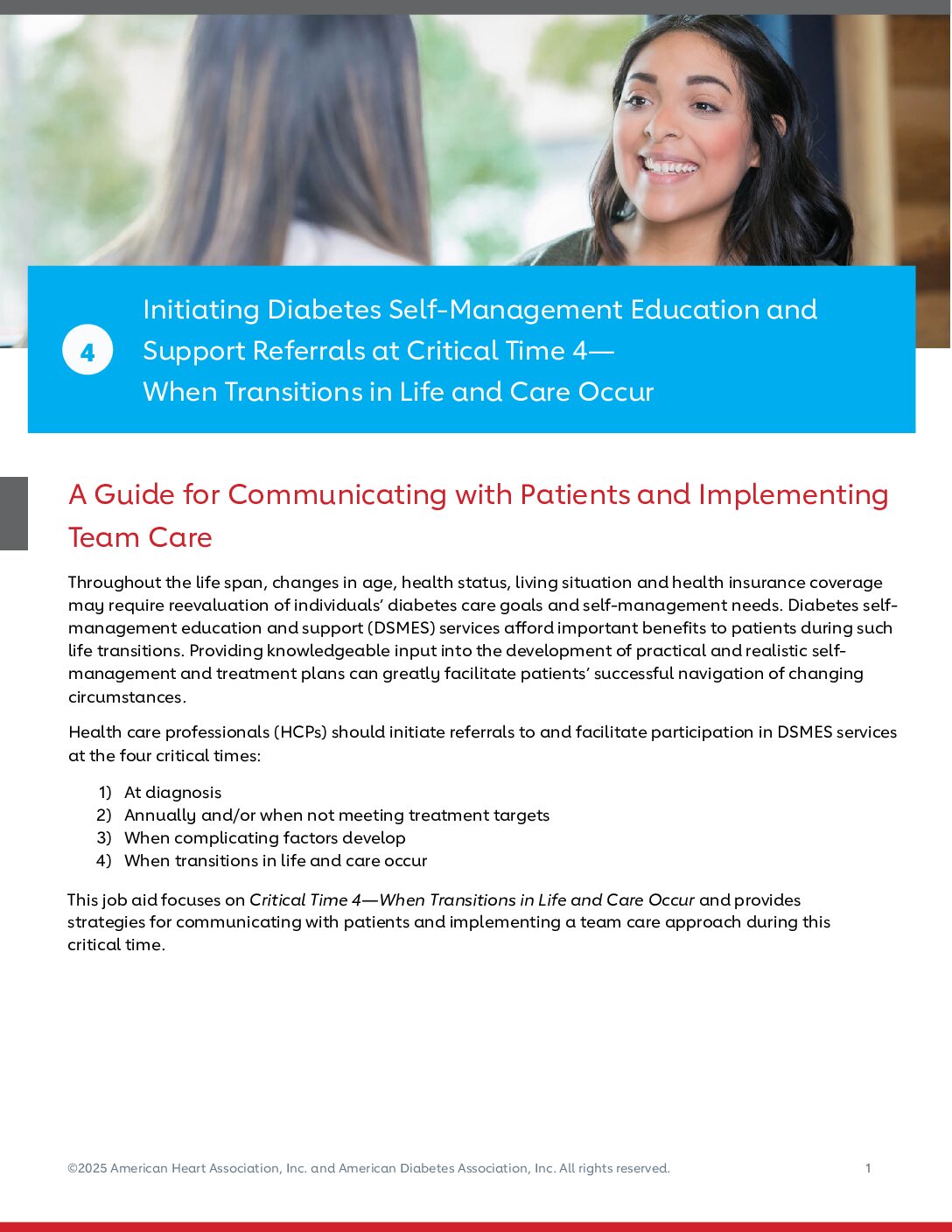
A Guide for Communicating with Patients and Implementing Team Care. Throughout the life span, changes in age, health status, living situation or health insurance coverage may require a reevaluation of the diabetes care goals and self-management needs. Diabetes self-management education and support (DSMES) services afford important benefits to patients during a life transition. Providing input into the development of practical and realistic self-management and treatment plans can be an effective asset for successful navigation of changing situations.
Initiating DSMES Referrals at Critical Time 3—When New Complicating Factors Influence Self-Management
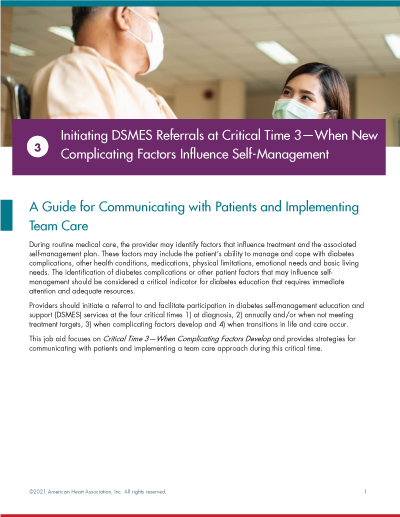
A Guide for Communicating with Patients and Implementing Team Care. During routine medical care, the provider may identify factors that influence treatment and the associated self-management plan. These factors may include the patient’s ability to manage and cope with diabetes complications, other health conditions, medications, physical limitations, emotional needs and basic living needs. The identification of diabetes complications or other patient factors that may influence self- management should be considered a critical indicator for diabetes education that requires immediate attention and adequate resources.
Initiating DSMES Referrals at Critical Time 2—Annually and/or When Not Meeting Treatment Targets
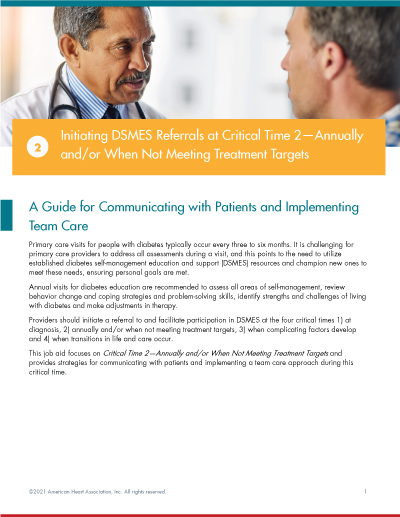
A Guide for Communicating with Patients and Implementing Team Care. Primary care visits for people with diabetes typically occur every three to six months. It is challenging for primary care providers to address all assessments during a visit, and this points to the need to utilize established diabetes self-management education and support (DSMES) resources and champion new ones to meet these needs, ensuring personal goals are met.
Initiating DSMES Referrals at Critical Time 1— at Diagnosis
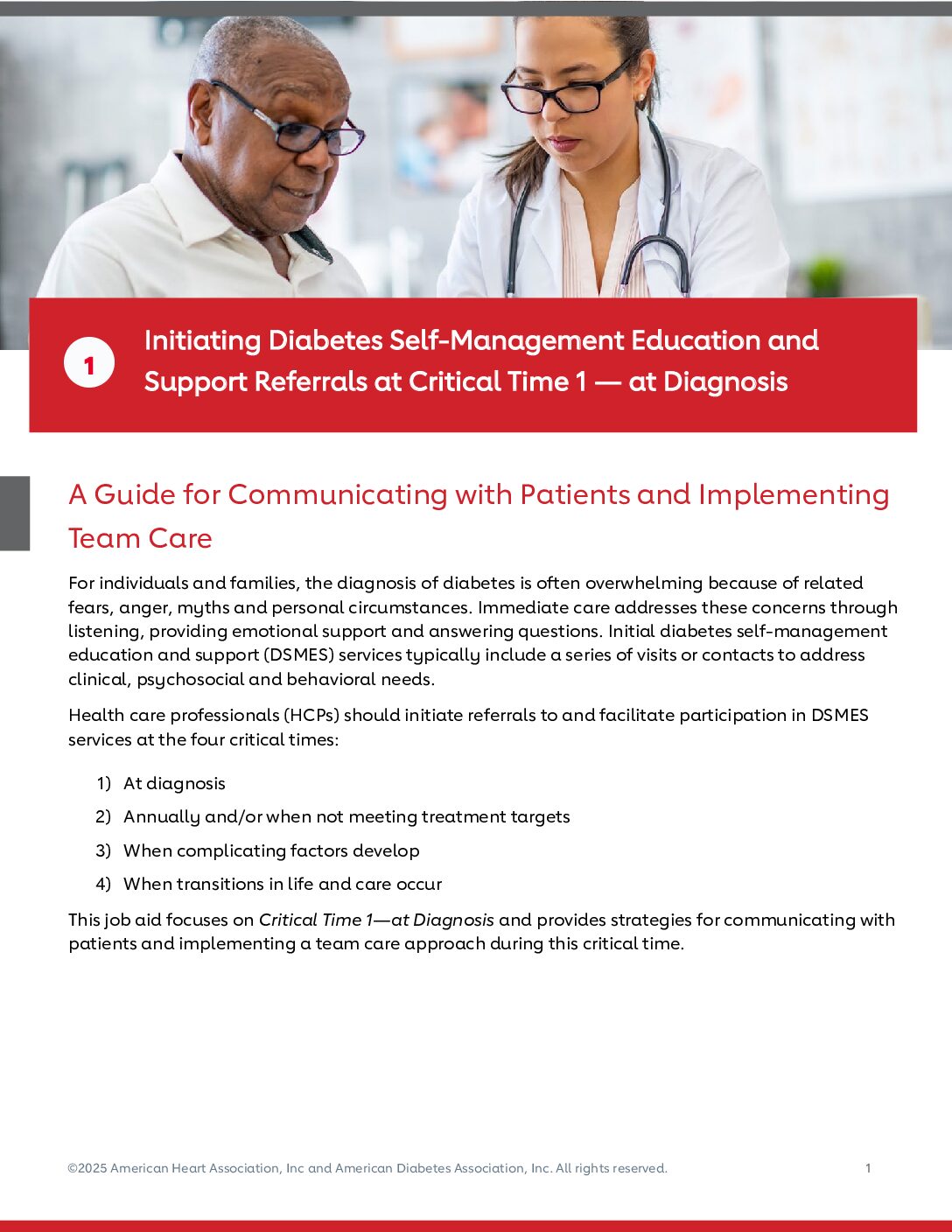
A Guide for Communicating with Patients and Implementing Team Care. For an individual and family, the diagnosis of diabetes is often overwhelming due to fears, anger, myths and personal, family and life circumstances. Immediate care addresses these concerns through listening, providing emotional support and answering questions. Initial diabetes self-management education and support (DSMES) services at diagnosis typically include a series of visits or contacts to build on clinical, psychosocial and behavioral needs.
Diabetes Self-Management Education and Support (Dsmes) Services
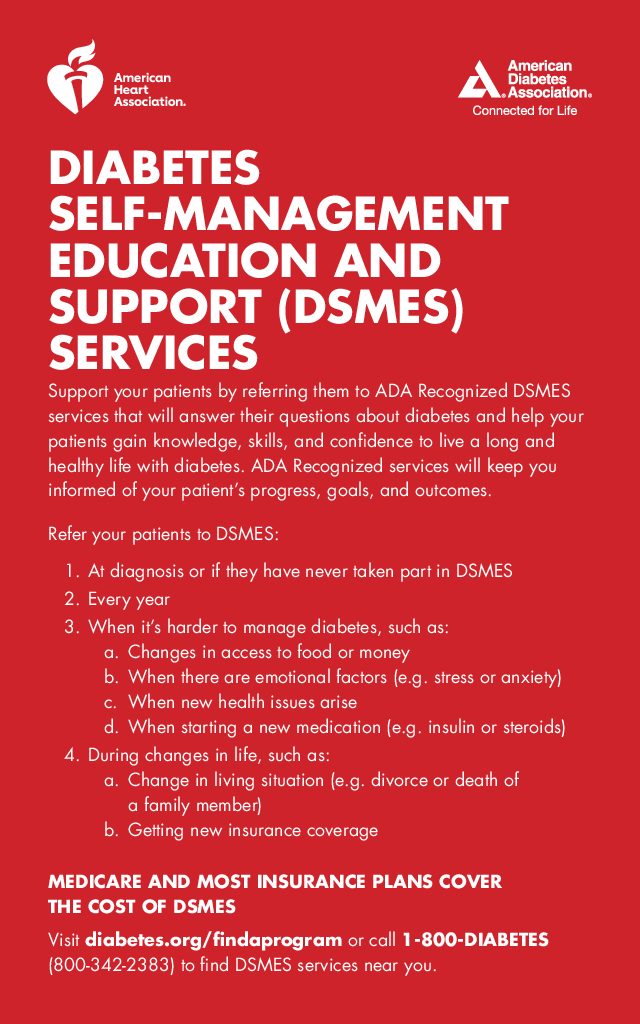
Support your patients by referring them to ADA recognized DSMES services that will answer their questions about diabetes and help your patients gain knowledge, skills, and confidence to live a long and healthy life with diabetes.
Managing Your Diabetes Starts With Education
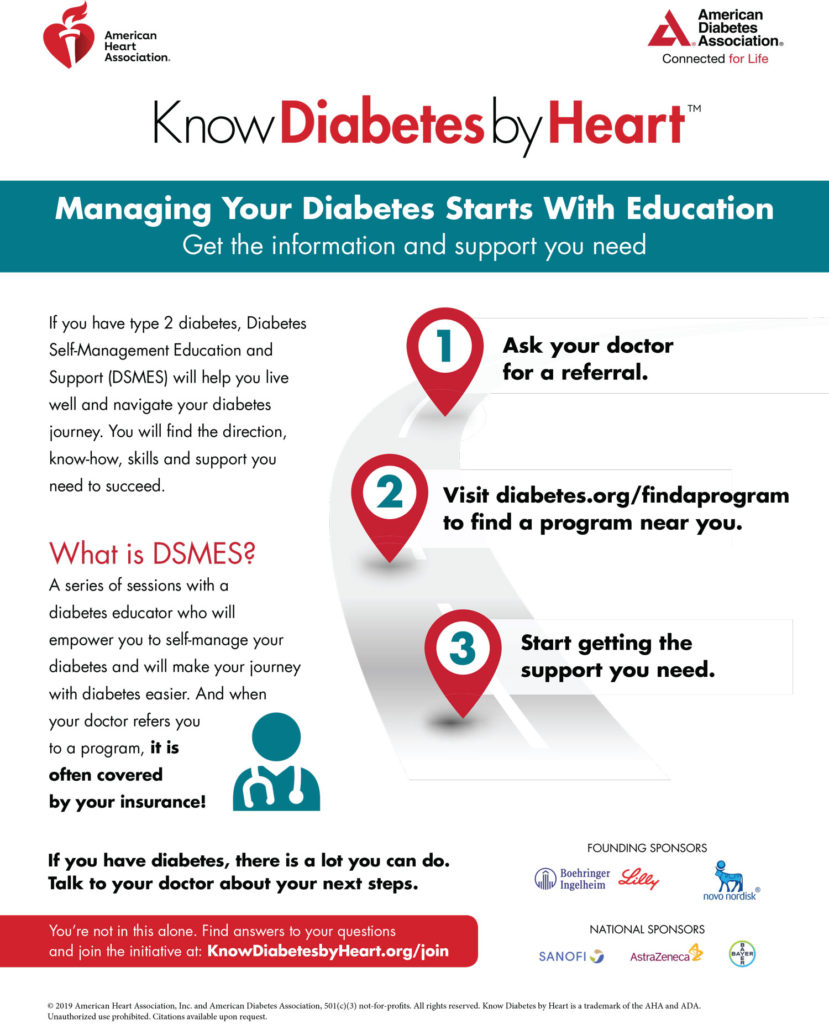
Managing Your Diabetes Starts with Education. Get the information and support you need. If you have type 2 diabetes, Diabetes Self-Management Education and Support (DSMES) Services. will help you live well and navigate your diabetes journey. You will find the direction, know-how, skills and support you need to succeed.
Managing Cardiovascular Risk in People Living With Diabetes: Shared Decision-making Discussion Guide and Approaches for Developing a Successful Treatment Plan
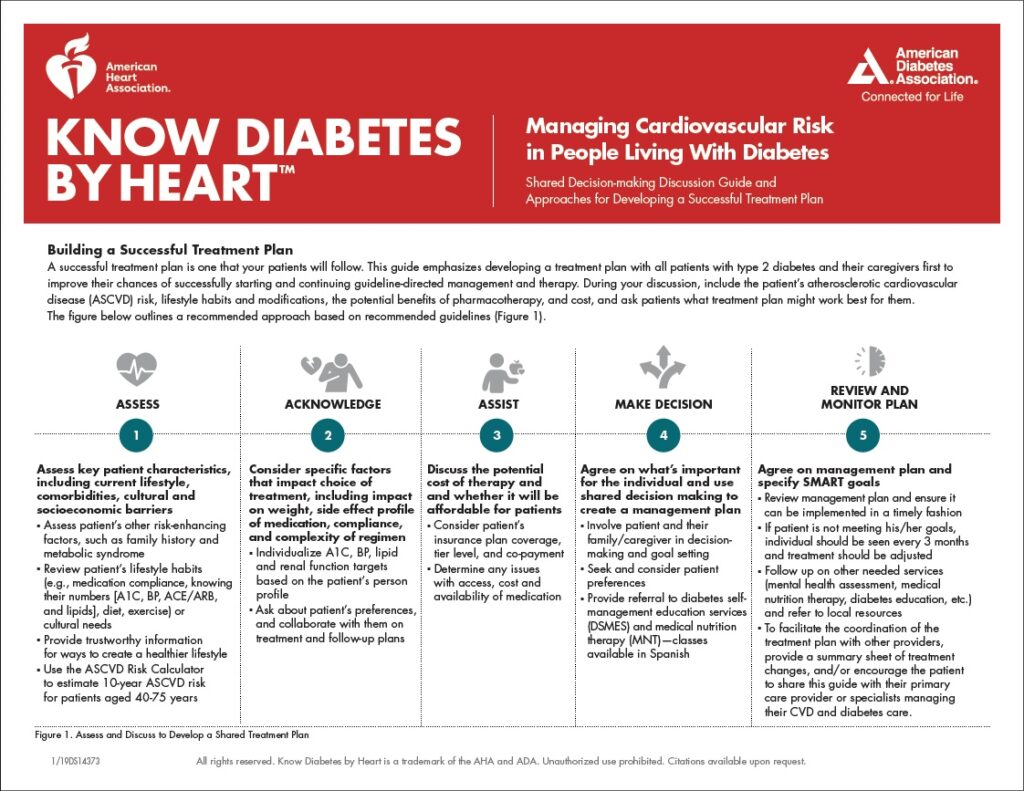
This guide emphasizes a treatment plan with all patients with T2D and their caregivers first to improve their chanes of successfully starting and continuing guideline-directed management and therapy.
Diabetes Self-Management Education Referral
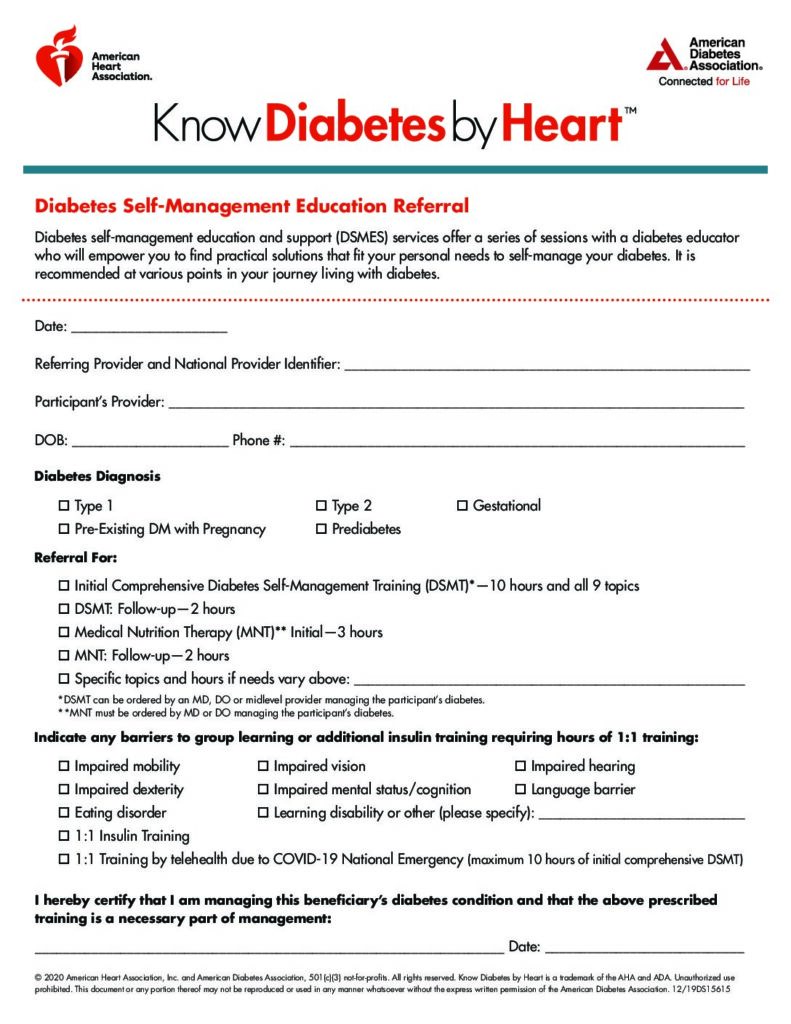
Diabetes self-management education and support (DSMES) services offer a series of sessions with a diabetes educator who will empower you to find practical solutions that fit your personal needs to self-manage your diabetes. It is recommended at various points in your journey living with diabetes.
Benefits of Diabetes Educator Referrals
Diabetes education has positive effects not only on psychosocial and behavioral aspects of diabetes care, but also known to be a cost-effective treatment by reducing hospital readmissions and lowered risk for complications. Yet, many patients often do not receive DSMES (Diabetes Self-Management Education and Support) referrals. Listen to Nancy D’Hondt, a certified diabetes educator and registered pharmacist, Dr. Lillian Khor, a cardiologist and Dr. Jay Shubrook, an osteopathic family physician, discuss how they work with CDEs and the benefits found from referring patients to diabetes self-management programs and a certified diabetes educator.
Nancy D’Hondt, RPh, CDE, FAADE is a clinical pharmacist and certified diabetes educator at Ascension St. John Hospital and Medical Center in Detroit, Michigan. Her involvement in the diabetes landscape spans 20 years where she has served on local and national committees for the American Diabetes Association (ADA), Juvenile Diabetes Research Foundation (JDRF) and the American Association of Diabetes Educators (AADE). Nancy was a member of the AADE National Board of Directors and provided leadership for the organization as the 2017 President of the Board.

Lillian Khor, MB.BCh., MRCP UK, MSc is a general cardiologist at both the Veteran’s Affairs Medical Center and the University of Utah Health Care, where she is Medical Director of Preventive Cardiology and Cardiac Rehabilitation. She has published on gender and age-related differences in the prognostic value of a biomarker (C-reactive protein) in patients with established coronary artery disease. She is passionate about community education and has promoted this as past President of Utah’s American Heart Association’s (AHA) Board of Directors (2010-2014).

Jay Shubrook, DO, FAAFP, FACOCP is a Family Physician and Fellowship trained Diabetologist. He is currently a Professor at Touro University California. Dr. Shubrook’s professional work and passion focuses on preparing the primary care workforce to better manage diabetes; and optimizing the prevention and treatment of diabetes. He served as the Director of an integrated comprehensive diabetes care center and also as the Director of Clinical Research at both Ohio University Heritage College of Osteopathic Medicine (HCOM) and more recently Touro University California College of Osteopathic Medicine; and is the immediate past Chair of the Primary Care Advisory Board of the American Diabetes Association.

Jay Shubrook, DO, FAAFP, FACOCP






